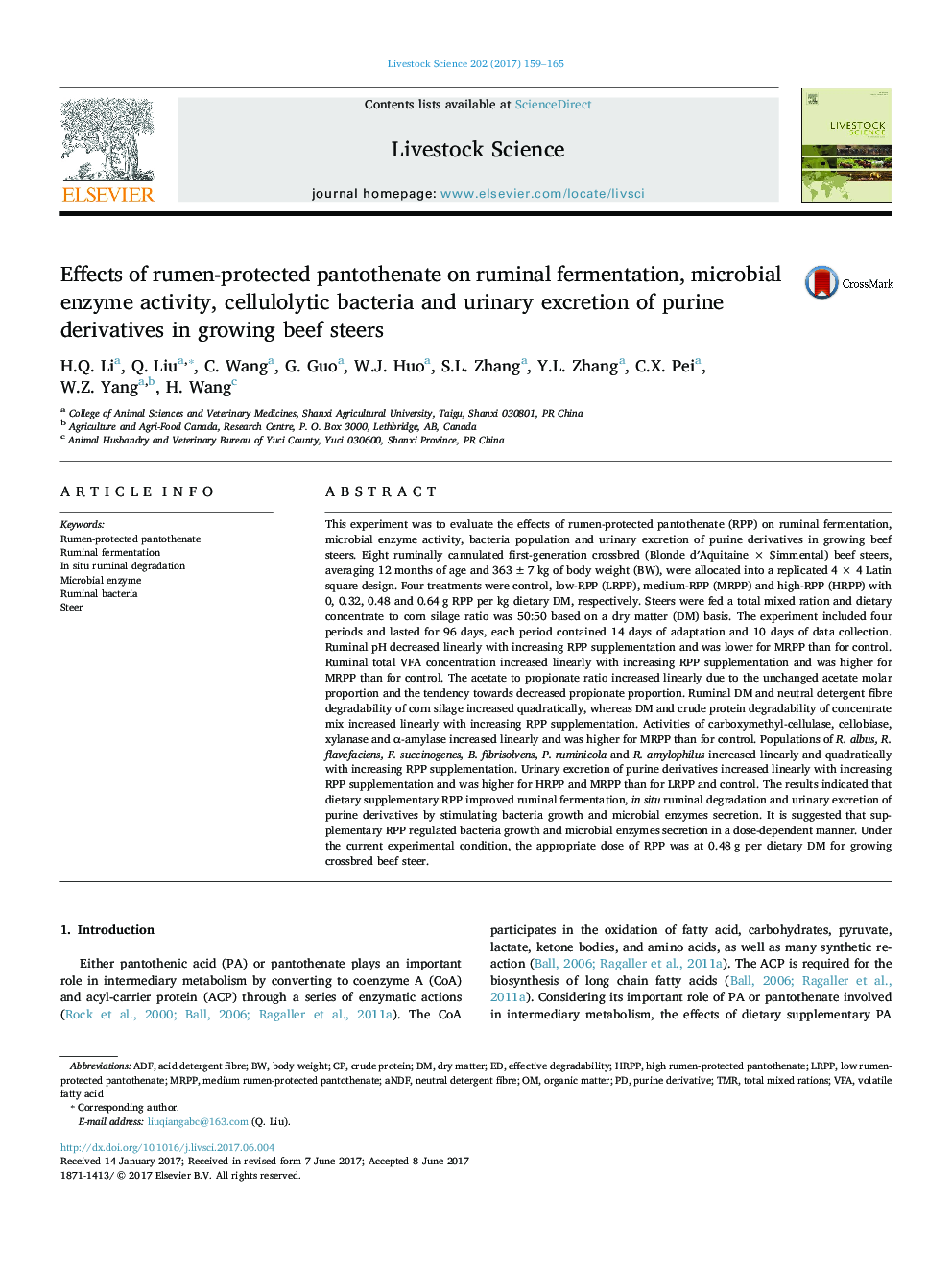| Article ID | Journal | Published Year | Pages | File Type |
|---|---|---|---|---|
| 5543100 | Livestock Science | 2017 | 7 Pages |
Abstract
This experiment was to evaluate the effects of rumen-protected pantothenate (RPP) on ruminal fermentation, microbial enzyme activity, bacteria population and urinary excretion of purine derivatives in growing beef steers. Eight ruminally cannulated first-generation crossbred (Blonde dâ²Aquitaine à Simmental) beef steers, averaging 12 months of age and 363 ± 7 kg of body weight (BW), were allocated into a replicated 4 à 4 Latin square design. Four treatments were control, low-RPP (LRPP), medium-RPP (MRPP) and high-RPP (HRPP) with 0, 0.32, 0.48 and 0.64 g RPP per kg dietary DM, respectively. Steers were fed a total mixed ration and dietary concentrate to corn silage ratio was 50:50 based on a dry matter (DM) basis. The experiment included four periods and lasted for 96 days, each period contained 14 days of adaptation and 10 days of data collection. Ruminal pH decreased linearly with increasing RPP supplementation and was lower for MRPP than for control. Ruminal total VFA concentration increased linearly with increasing RPP supplementation and was higher for MRPP than for control. The acetate to propionate ratio increased linearly due to the unchanged acetate molar proportion and the tendency towards decreased propionate proportion. Ruminal DM and neutral detergent fibre degradability of corn silage increased quadratically, whereas DM and crude protein degradability of concentrate mix increased linearly with increasing RPP supplementation. Activities of carboxymethyl-cellulase, cellobiase, xylanase and α-amylase increased linearly and was higher for MRPP than for control. Populations of R. albus, R. flavefaciens, F. succinogenes, B. fibrisolvens, P. ruminicola and R. amylophilus increased linearly and quadratically with increasing RPP supplementation. Urinary excretion of purine derivatives increased linearly with increasing RPP supplementation and was higher for HRPP and MRPP than for LRPP and control. The results indicated that dietary supplementary RPP improved ruminal fermentation, in situ ruminal degradation and urinary excretion of purine derivatives by stimulating bacteria growth and microbial enzymes secretion. It is suggested that supplementary RPP regulated bacteria growth and microbial enzymes secretion in a dose-dependent manner. Under the current experimental condition, the appropriate dose of RPP was at 0.48 g per dietary DM for growing crossbred beef steer.
Keywords
Related Topics
Life Sciences
Agricultural and Biological Sciences
Animal Science and Zoology
Authors
H.Q. Li, Q. Liu, C. Wang, G. Guo, W.J. Huo, S.L. Zhang, Y.L. Zhang, C.X. Pei, W.Z. Yang, H. Wang,
